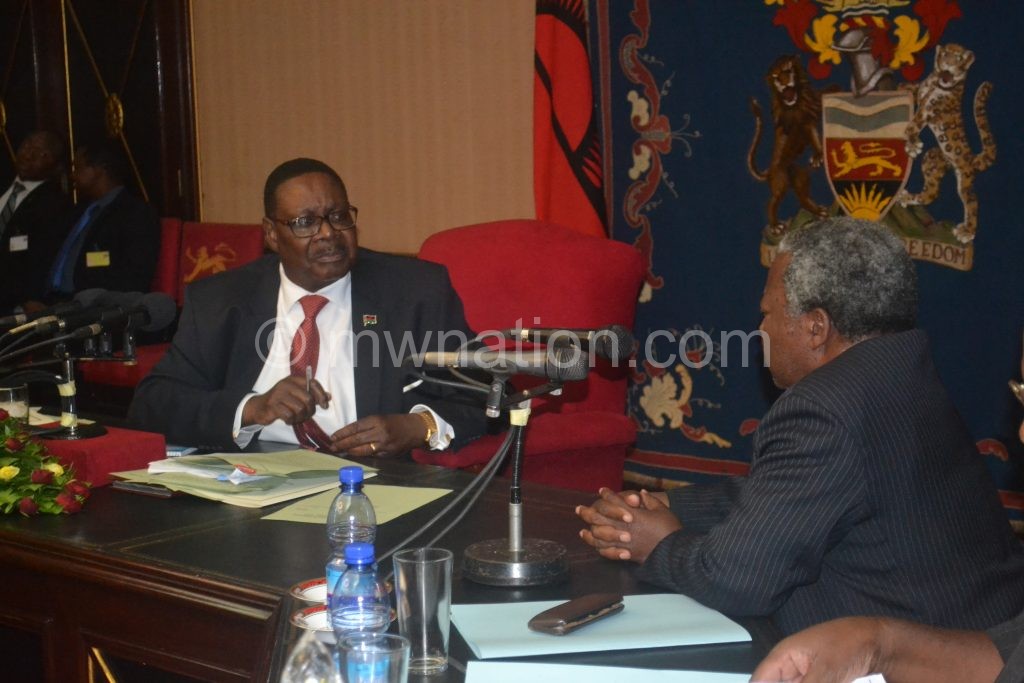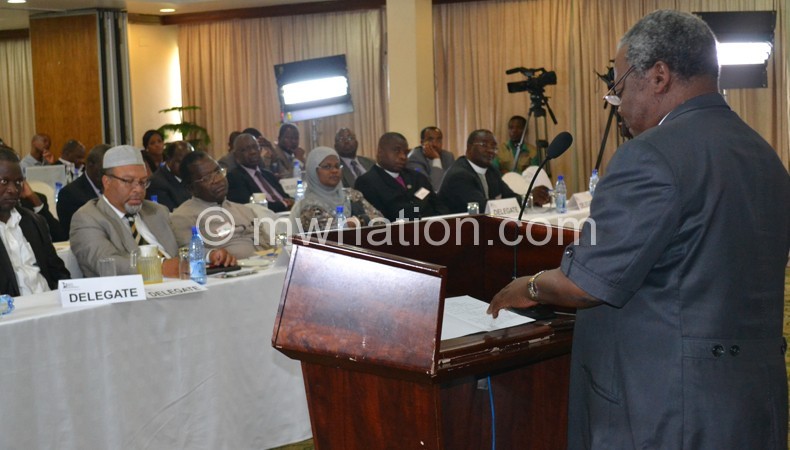mixed views over next pac meet
Most delegates to the Public Affairs C o m m i t t e e (PAC) have accused the quasi-religious body of being in a deep slumber, questioning the relevance of all-inclusive conferences when the influential body fails to achieve most of the conferences’ recommendations.
Out of 38 delegates to the conferences, Nation on Sunday interviewed through phone calls, WhatsApp and e-mails, 27, representing 71 percent, said despite the all-inclusive conferences PAC organises being important, the significance of the conferences are being watered down by PAC’s failure to implement recommendations.

From the 27 delegates that doubted relevance of such conferences, but gave PAC a benefit of doubt to continue with the initiative, 11 delegates, representing 29 percent, did not find a convincing reason for PAC to call for yet another conference.
Instead, the 11 delegates suggested that PAC should go into soul-searching after talks with a Government Technical Team (GTT) appointed by President Peter Mutharika to engage PAC on resolutions from the previous conference collapsed.
The other 16 delegates feel another conference would give PAC a platform to report back to them on how the dialogue with government collapsed, and together find the way forward.
PAC has confirmed it is set to hold what it calls a 5+1 All-Inclusive Stakeholders’ Conference, this October, a development that has prompted some delegates who attended the February 2016 conference question its relevance.
Centre for Human Rights and Rehabilitation (CHRR) executive director Timothy Mtambo said in an interview on Wednesday, PAC risked denting its reputation if it continues not to follow up on recommendations from previous conferences to their logical and conclusive end.

Mtambo said: “Several recommendations have been made on poor governance, deep-rooted corruption and Constitutionalism.
Malawians would want to know where we are with these issues.”
H u m a n R i g h t s Consultative Committee (HRCC) chairperson Robert Mkwezalamba said his expectations from PAC’s last conference had not been met yet, saying he was not aware of any issue raised for government’s action that has been addressed.
Vocal human rights activist, Billy Mayaya, said the expectation was that government would act on the actionable recommendations, which were the key output of the conference, but he said sadly, government shirked its responsibility to act upon those demands, which he said was disappointing.
Martha Kwataine, another human rights activist who attended the February PAC conference, appealed for more of such conferences, saying in a response to a questionnaire, that expectations from the conference were not met as per resolutions made.
Institute of Pol icy Interaction (IPI) executive director Rafiq Hajat said there was a need to ensure that recommendations from previous meetings are implemented. He said it was important to keep on conversing.
Benedicto Kondowe, national coordinator of Civil Society Coalition on Education, said while the last conference provided a rare platform, the after-conference processes were frustrating in that some issues were watered down.
“PAC failed to demonstrate consistency in driving the agenda as exemplified by the blame game between government and itself.
As a consequence, PAC ended up confusing the public of its position on the dialogue with government.
On one hand, it stated that it had withdrawn while on the other hand, it later stated that it was still committed to dialogue.”
Publicity secretary of United Democratic Front (UDF) Ken Ndanga, said the collapse of talks between PAC and GTT was a lost opportunity for both parties while Umodzi Party president John Chisi said government, or PAC alone, cannot solve problems, adding:
“Unfortunately, DPP [Democratic Progressive Party] refuses to allow others to come on board to solve problems.”
But other delegates, including Getrude Witika from Malawi Congress of Trade Union (MCTU) and 10 others, said they did not see any reason PAC should continue organising such conferences when dialogue with government collapsed and there was no way forward yet.
Minister of Finance, Economic Planning and Development, Goodall Gondwe, one of senior Cabinet ministers who attended the conference, said in an interview on Wednesday that such conferences are enlightening, “except in situations where some individuals with hidden agendas hijack them to call for the President’s resignation or PAC allowing some ideas outside the meeting to slip through into the conference’s resolutions”.
“The only problem is that we agree on something, but tell the nation something different.
We never agreed to call for the President’s resignation or issue ultimatums to government,” said Gondwe.
Minister of Justice and Constitutional Affairs, Samuel Tembenu, the leader of GTT, PAC officials blamed for the failed dialogue, said in an interview on Wednesday that he would decide whether to attend upon receiving an invitation.
In November 2014, delegates to a PAC national stakeholders’ f o r u m u n a n i m o u s l y recommended reviews of the Constitution and electoral laws, but so far, there is no progress on that.
PAC executive director Robert Phiri confirmed in an interview that the next conference was due end this month, but he proposed to the body’s chairperson, the Reverend Felix Chingota, to move it to October. Phiri declined to dwell on reasons for the change of the dates.
However, according to an inside source, experts in the PAC technical team planning for the forthcoming conference, have advised the body to delay the conference to October, to ensure thorough preparations in the light of the political climate the nation is in.
The source said: “The conference may take the shape of ‘Reclaiming the State of Governance and Public Trust’ this being the proposed theme that will be improved in due course.”n
Fast Facts
- 2014 presidential candidates committed themselves to19 issues developed from All-Inclusive Stakeholders Conferences since 2012 as a way of following up on resolutions.
- Notable resolutions included establishment of permanent planning commission, tackling corruption, observance of the Constitution and implementation of Section 65.
- After the collapse of dialogue between PAC and GTT, PAC demanded new terms of reference (ToRs) and wanted the talks’ approach redesigned.
- PAC wanted the ToRs to include development of a road map for conversation on recommendations and actionable resolutions on the political and economic direction of the country.
- PAC wanted to examine government’s written response to recommendations and actionable resolutions in terms of scope and depth, issue joint communiqués





